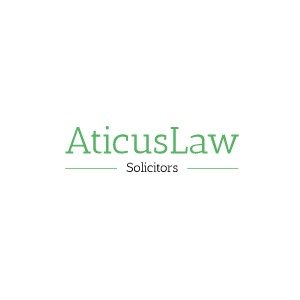Best Adoption Lawyers in Wilmslow
Share your needs with us, get contacted by law firms.
Free. Takes 2 min.
Free Guide to Hiring a Family Lawyer
List of the best lawyers in Wilmslow, United Kingdom
About Adoption Law in Wilmslow, United Kingdom
Adoption law in Wilmslow, United Kingdom, is primarily governed by national adoption legislation, including the Adoption and Children Act 2002. Ensuring that the child’s welfare is the paramount concern, the law sets out who can adopt, eligibility criteria, adoption procedures, and safeguard measures. Although the adoption process is initially pursued through adoption agencies, a formal Adoption Order must be granted by the court to officialise the adoption.
Why You May Need a Lawyer
Having a lawyer is not mandatory, but it often proves beneficial during the adoption process. A lawyer can provide necessary legal advice, assist with paperwork, and ensure all procedures are correctly followed. They can be particularly valuable in complex situations, such as international adoptions, where another country's law comes into play, in contested adoptions, or when dealing with the rights of biological parents.
Local Laws Overview
The key aspects of local laws relating to adoption in Wilmslow cover who is eligible to adopt, the adoption process, and post-adoption considerations.
Eligibility criteria include being at least 21 years old, and it is possible for single persons, married couples, and civil partners to adopt. The child’s welfare must be the applicant's primary concern.
The adoption process involves an extensive evaluation, adoption panel review, matching a child with prospective adoptive parents, and the formal adoption application via the court. It can often take a few months to several years. Post-adoption, an adoption order grants parental rights and responsibilities to the adoptive parents, and the adopted child gains the same rights as if they were the birth child of the adoptive parents.
Frequently Asked Questions
1. Who can adopt a child in Wilmslow?
Any individual aged 21 or over can adopt in Wilmslow. This includes single people, married couples, and civil partners. There are no strict income or educational requirements, but the prospective adopter must prove they can provide a safe and loving environment.
2. How long does the adoption process take?
The adoption process' length varies depending on individual circumstances, but it generally takes between several months to a few years.
3. What is the role of the court in the adoption process?
A family court in Wilmslow will review the application to ensure that adoption is in the child's best interest, conduct court hearings, and ultimately, grant the Adoption Order.
4. Do the birth parents have any rights after adoption?
After an Adoption Order is granted, the birth parents generally lose all legal rights and responsibilities. However, in some circumstances, they may have agreed to some form of post-adoption contact with the child.
5. Can you adopt a child from another country?
Yes, but international adoptions are more complex due to different countries' laws. Prospective parents must meet both the UK’s adoption eligibility criteria and the child’s home country criteria.
Additional Resources
There are several resources individuals seeking to adopt may find helpful. These include local adoption agencies, the Department for Education, the Adoption Support Fund, local community groups, and child welfare organisations.
Next Steps
If you require legal assistance for adoption, your first step should be to contact a solicitor who specialises in family law. Ensure that they are experienced in adoption law and can competently guide you through the process. It would also be advisable to reach out to local adoption agencies to gain further information.
Lawzana helps you find the best lawyers and law firms in Wilmslow through a curated and pre-screened list of qualified legal professionals. Our platform offers rankings and detailed profiles of attorneys and law firms, allowing you to compare based on practice areas, including Adoption, experience, and client feedback.
Each profile includes a description of the firm's areas of practice, client reviews, team members and partners, year of establishment, spoken languages, office locations, contact information, social media presence, and any published articles or resources. Most firms on our platform speak English and are experienced in both local and international legal matters.
Get a quote from top-rated law firms in Wilmslow, United Kingdom — quickly, securely, and without unnecessary hassle.
Disclaimer:
The information provided on this page is for general informational purposes only and does not constitute legal advice. While we strive to ensure the accuracy and relevance of the content, legal information may change over time, and interpretations of the law can vary. You should always consult with a qualified legal professional for advice specific to your situation.
We disclaim all liability for actions taken or not taken based on the content of this page. If you believe any information is incorrect or outdated, please contact us, and we will review and update it where appropriate.








